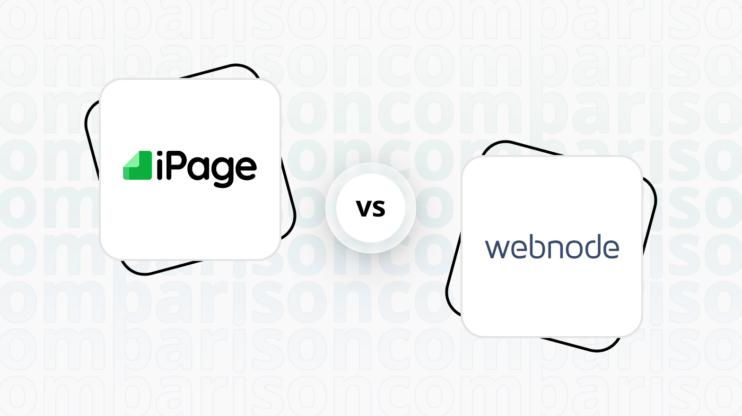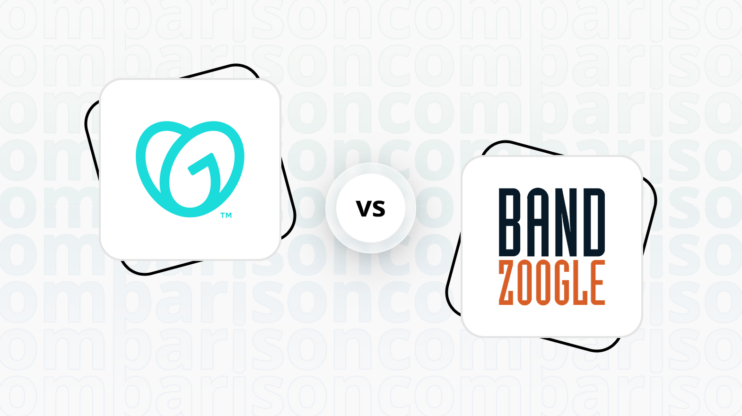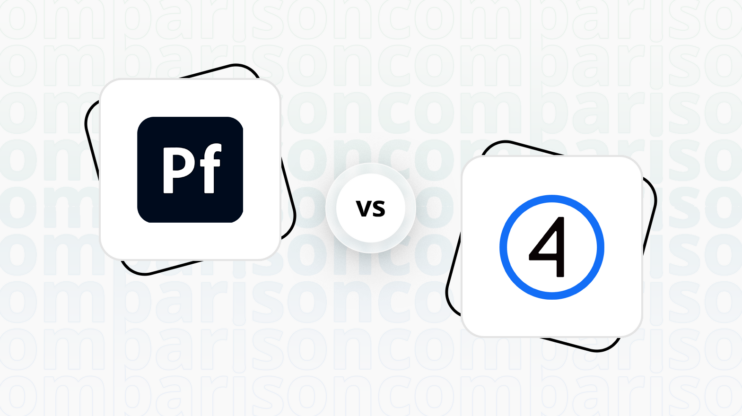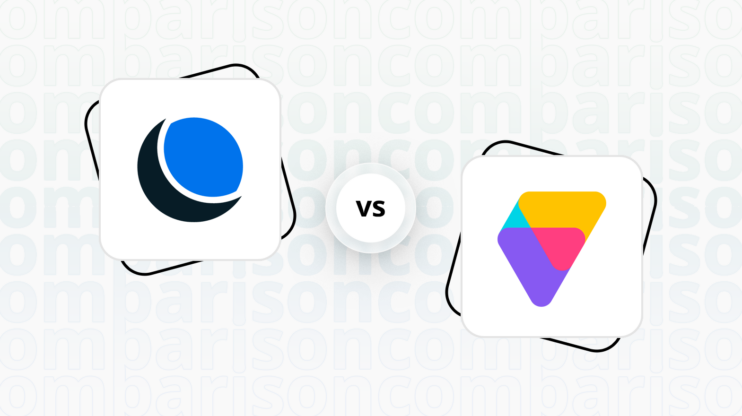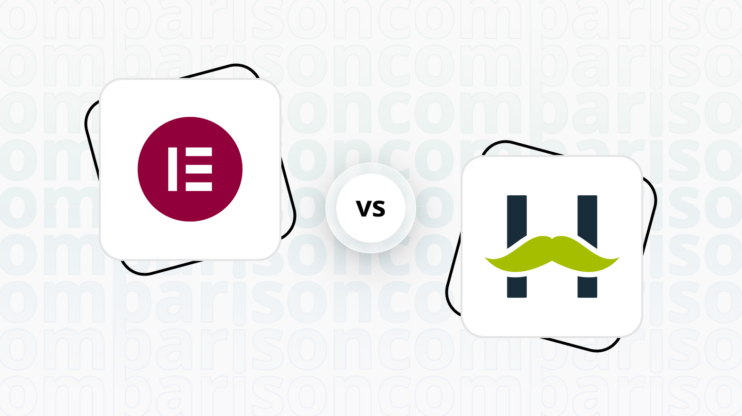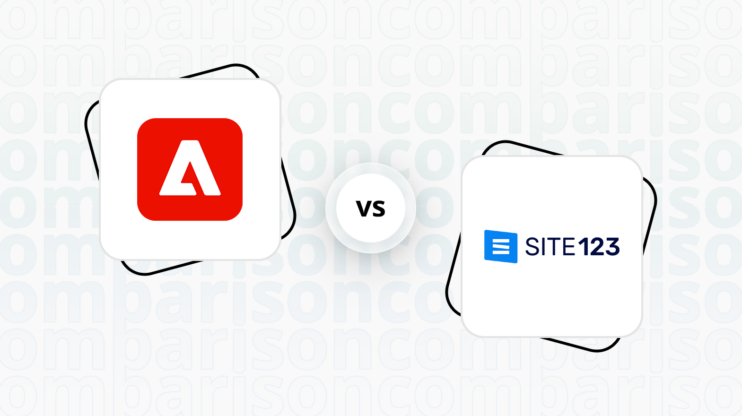Final verdict
WordPress and BigCommerce both offer powerful platforms, but they cater to different needs and user bases.
-
WordPress (Overall Grade: 7.1/10)
is an open-source CMS known for its extensive customization options and flexibility. It is ideal for users who need a versatile platform for various types of websites, including blogs, business sites, and online stores. When comparing WordPress vs BigCommerce, WordPress excels in design functionalities and plugins, making it a preferred choice for those who prioritize creative control and extensive customization. -
BigCommerce (Overall Grade: 7.9/10)
is a comprehensive ecommerce platform designed for businesses looking to scale their online presence. It offers a wide range of built-in features, advanced SEO tools, and multi-channel selling capabilities. In the WordPress vs BigCommerce comparison, BigCommerce stands out for its robust ecommerce functionalities, user-friendly interface, and superior hosting quality, making it an excellent choice for merchants focused on growing their online stores.

|

|
|
|---|---|---|
|
Design functionalities & templates |
9.0 |
7.8 |
|
Ease of use |
7.2 |
7.3 |
|
Ecommerce |
8.4 |
9.0 |
|
Website Editors |
8.5 |
7.9 |
|
Product testing options |
8.1 |
7.3 |
|
Price |
5.9 |
7.4 |
|
Hosting quality |
0 |
7.8 |
|
Website speed optimization |
6.5 |
7.6 |
|
Plugins/extensions and integrations |
8.8 |
7.7 |
|
Marketing features |
8.0 |
7.9 |
|
Customer support |
5.0 |
8.7 |
|
Website security |
6.7 |
8.9 |
|
AI capabilities |
6.1 |
7.3 |
|
User Management |
8.8 |
8.9 |
Best for ecommerce
 8.4
8.4
 9.0
9.0
Verdict
: BigCommerce is ideal for businesses looking for a comprehensive, all-in-one ecommerce solution, while WordPress offers flexibility and extensive customization through plugins like WooCommerce.
-
WordPress
: With a score of 8.4, WordPress, combined with WooCommerce, provides a flexible ecommerce solution. It supports multiple payment gateways, abandoned cart recovery, and SEO optimization tools. However, it may require more setup and management compared to dedicated ecommerce platforms. When comparing WordPress vs BigCommerce, WordPress stands out for its extensive plugin ecosystem, allowing for high customization. -
BigCommerce
: Scoring 9.0, BigCommerce is a robust ecommerce platform with built-in features like unlimited products, streamlined single-page checkout, and advanced marketing tools. It supports over 65 payment gateways and offers extensive customization options for product pages. However, its complexity might not be ideal for beginners or those not tech-savvy.
Best for informational & business websites
 9.2
9.2
 7.5
7.5
Verdict
: WordPress is the superior choice for informational and business websites due to its extensive customization options and flexibility. BigCommerce, while robust for ecommerce, falls short in comparison for purely informational sites.
-
WordPress
: With a score of 9.2, WordPress excels in creating and managing informational websites. Its open-source nature allows for high customization and creative freedom, making it suitable for a wide range of website types. The platform offers a vast array of themes and plugins, enabling users to tailor their sites to specific needs. WordPress is ideal for users who prioritize design flexibility and extensive functionality. -
BigCommerce
: Scoring 7.5, BigCommerce is primarily an ecommerce platform but can be used for informational websites. It offers a variety of design templates and built-in features, making it user-friendly. However, its focus on ecommerce means it may not provide the same level of customization and flexibility as WordPress. For businesses looking to scale their online presence with a strong ecommerce component, BigCommerce is a solid choice, but it may not be the best fit for purely informational sites.
Detailed comparison
Design functionalities & templates
Design FunctionalitiesRepresents how well each platform allows for creative design and customization of websites.Score Components:
- Template Variety (30%): Range and quality of design templates.
- Customization (30%): Flexibility and options for design alterations.
- User Interface (20%): Ease and intuitiveness of the design process.
- Responsiveness (10%): Adaptability to different devices and screen sizes.
- Innovation (10%): Unique design features and tools.
 9.0
9.0
 7.8
7.8
🏆
Winner: WordPress.
If you’re looking for a platform that offers more creative control, a wide array of design features, and extensive customization options, WordPress is the preferred choice.
WordPress offers an extensive variety of templates and designs, catering to a wide range of website types beyond just blogs or ecommerce. Its open-source nature allows for high customization and creative freedom, appealing to diverse user needs. While WordPress itself doesn’t sell premium templates, numerous third-party theme shops offer sophisticated and specialized design choices, expanding the possibilities for users.
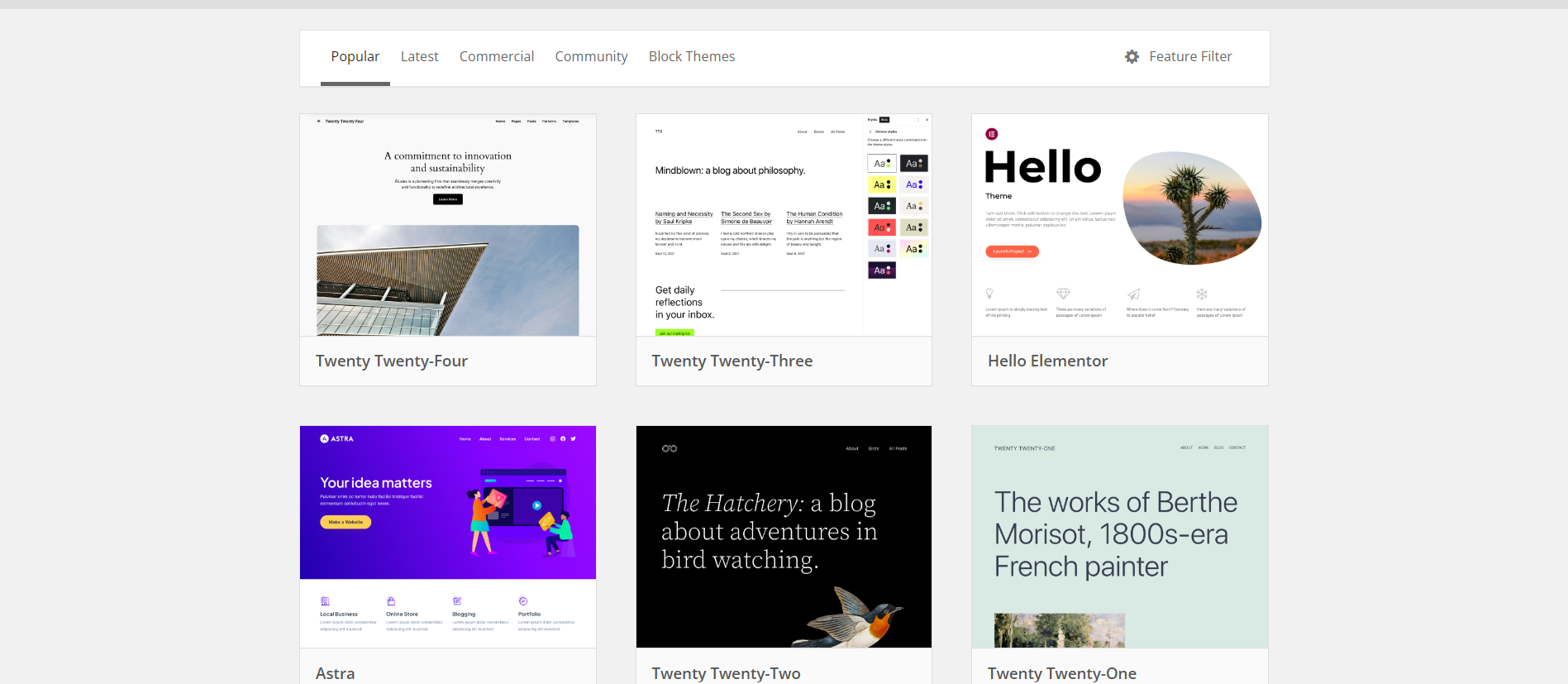

Compared to WordPress, BigCommerce offers a variety of design templates for creating ecommerce websites, with a total of 240 themes available. Most of these themes come with up to four styling options, providing users with flexibility in design choices to match their brand’s aesthetic. There are 12 free themes, while the rest range in price from $150 to $300 each.

Get a head start on website creation with AI
Create a custom website tailored to your business needs 10X faster with 10Web AI Website Builder!
Ease of use
Ease of useReflects the platform’s overall user-friendliness.Score
Components:
- Learning curve (40%): Quickness and ease of getting started.
- Interface design (30%): Simplicity and intuitiveness of layout.
- User guidance (20%): Quality of tutorials and support.
- Flexibility (10%): Adaptability to various user skills.
 7.2
7.2
 7.3
7.3
🏆 Winner: BigCommerce
. With a score of 7.3, BigCommerce slightly edges out WordPress, which scored 7.2. BigCommerce offers a user-friendly interface and a comprehensive set of built-in features, making it suitable for a broad spectrum of e-commerce businesses. WordPress, while offering great flexibility and power, can be less intuitive for beginners.
Learning Resources
🏆 Winner: Tie
. Both WordPress and BigCommerce offer a wide range of learning resources. WordPress is supported by a vast array of resources, including detailed documentation, community forums, online tutorials, and courses. BigCommerce offers articles, guides, webinars, podcasts, and reports, along with specific training through BigCommerce University.
For ecommerce
EcommerceMeasures the platform’s effectiveness in supporting online business activities.Score Components:
- Ecommerce themes and templates (20%): Variety and design of templates.
- Product management (25%): Ease of managing and organizing products.
- Payment options (25%): Variety and convenience of payment methods.
- Ecommerce features (20%): Features for managing an ecommerce store.
- Integration (10%): Compatibility with external e-commerce tools and services.
 8.4
8.4
 9.0
9.0
WordPress, with the help of plugins like WooCommerce, offers a flexible ecommerce solution. It provides multiple payment gateway support, abandoned cart recovery, ecommerce analytics, and SEO optimization tools. However, it might require a bit more setup and management compared to dedicated ecommerce platforms.
BigCommerce, on the other hand, is a comprehensive ecommerce platform with a wide array of built-in features. It offers unlimited products, streamlined single-page checkout, order management, abandoned cart recovery, and various marketing and sales tools. However, its complexity might not make it the ideal choice for beginners or those not tech-savvy.

|

|
|
|---|---|---|
|
Ecommerce themes and templates |
9.2 |
8.0 |
|
Product page customization |
9.0 |
8.3 |
|
Payment processing and commissions |
7.5 |
9.2 |
|
POS capabilities |
6.5 |
8.5 |
|
Payment gateways |
8.5 |
9.0 |
|
Product numbers |
7.0 |
9.5 |
|
Additional ecommerce features |
8.0 |
8.4 |
WordPress ecommerce features:
- WooCommerce Integration
- Multiple Payment Gateway Support
- Abandoned Cart Recovery
- Ecommerce Analytics
- SEO Optimization Tools
- Extensive Plugin Ecosystem
BigCommerce ecommerce features:
- Unlimited Products
- Streamlined Single-Page Checkout
- Order Management
- Abandoned Cart Recovery
- Marketing and Sales Tools
Ecommerce themes & templates
WordPress offers hundreds to potentially thousands of ecommerce and WooCommerce specific themes and templates, both free and premium. BigCommerce provides a wide variety of eCommerce templates designed to enhance online shopping experiences and cater to different industries. These templates feature advanced functionalities like quick view, product suggestions, and complex search filters but may require performance optimization for maintaining speed.
Product page customization
WooCommerce on WordPress offers extensive customization for eCommerce product pages, balancing plugins, page builders, and custom coding. Advanced features like product tabs, upsells, and related products are customizable. In contrast, BigCommerce allows extensive customization of product pages, including the ability to create detailed product variants, customize options like custom fields, and upload multiple images or videos for each product.
Payment processing
WordPress doesn’t handle payments directly but offers plugin options for payment processing. Popular gateways include PayPal, Stripe, Authorize.Net, and Square. BigCommerce supports over 65 pre-integrated online payment solutions, serving customers across 230 countries with more than 140 currencies, without charging additional transaction fees for using third-party payment gateways. This approach provides merchants with the flexibility to choose the best payment solution for their business needs, including the option for custom integration to cater to specific regional payment preferences.
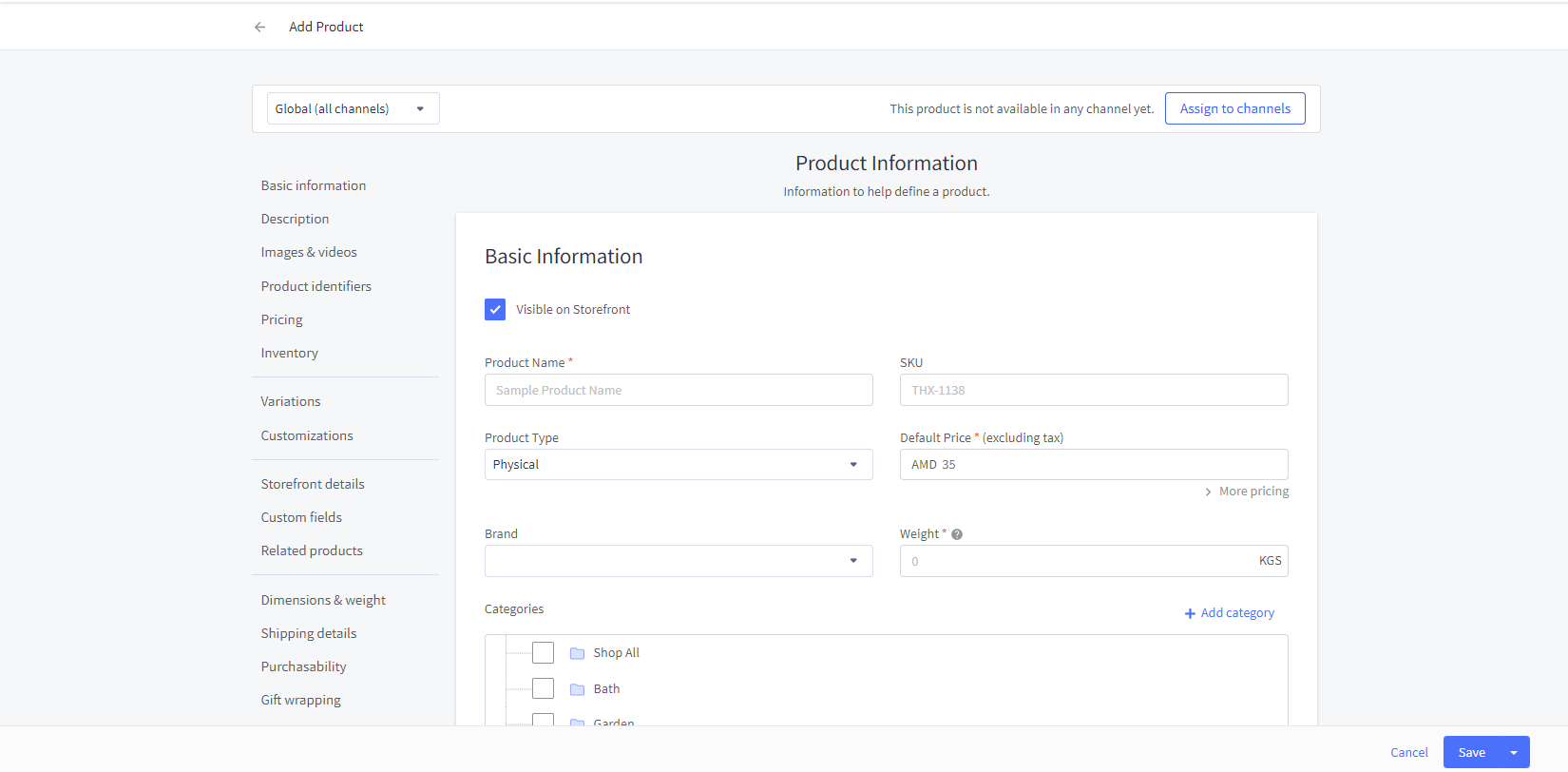
Website Editors
Website EditorsEvaluates the platforms’ website building and editing capabilities.Score Components:
- Customization tools (40%): Range and power of editing features.
- Editor usability (30%): User experience within the editor.
- Design flexibility (20%): Freedom in layout and design changes.
- Update and maintenance ease (10%): Simplicity of updating and maintaining the site.
 8.5
8.5
 7.9
7.9
🏆
Winner: WordPress
. WordPress, with a score of 8.5, offers a user-friendly interface with block-based editing, extensive styles customization, template management, page editing/creation, distraction-free modes, versatile saving options, and accessibility for users of varying skill levels. It also provides a WYSIWYG (What You See Is What You Get) interface, allowing users to see the end result while editing the website.
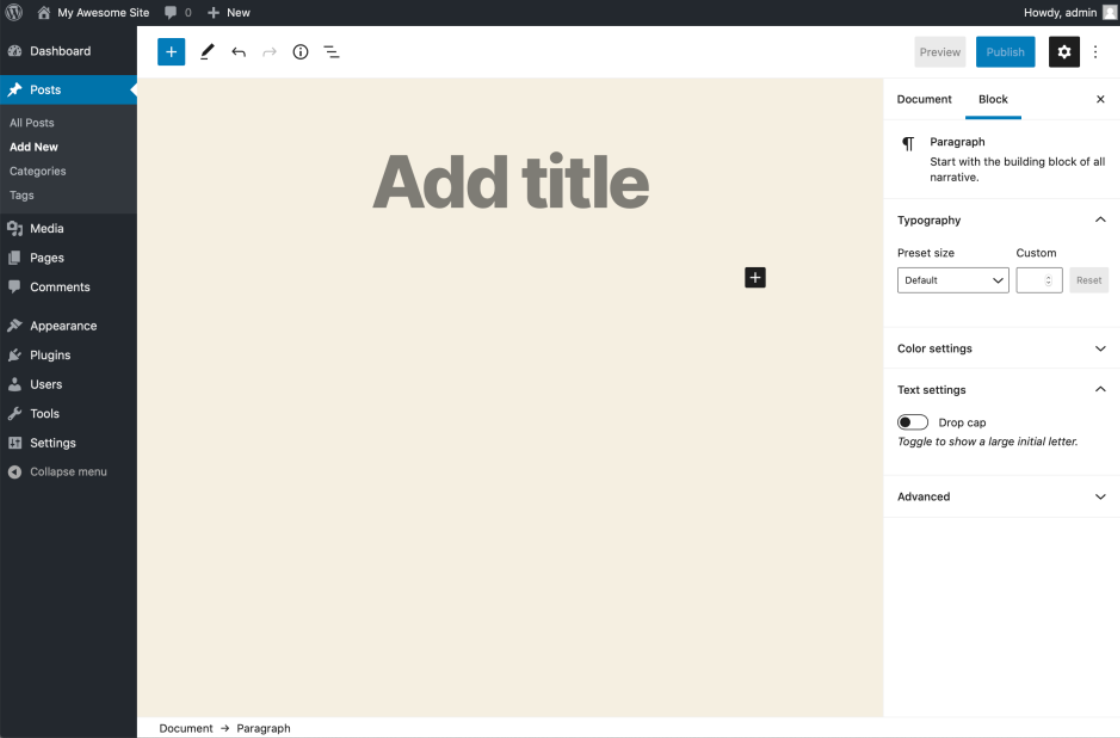
BigCommerce’s website builder and editor, scoring 7.9, offer an extensive set of tools designed for creating professional and engaging online stores without requiring coding knowledge. It provides a user-friendly drag-and-drop interface, robust eCommerce capabilities including product management and secure payment processing, and customizable templates to match brand aesthetics. However, its depth and the complexity of some features can be overwhelming for true beginners without web development experience.
Mobile editor/app
 8.1
8.1
 7.5
7.5
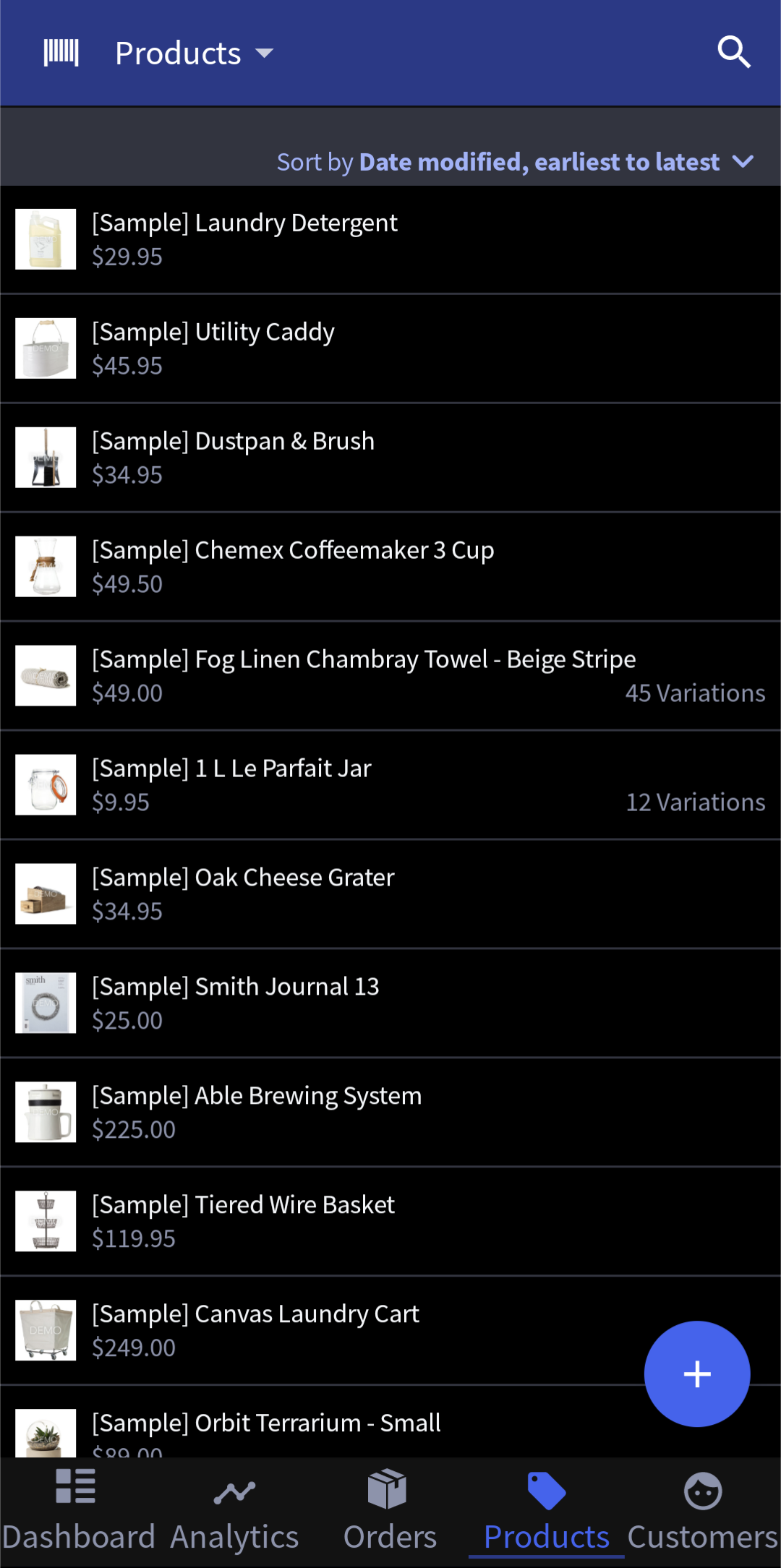
🏆
Winner: WordPress
. Both WordPress and BigCommerce offer mobile apps for managing your website, but they cater to different needs. WordPress’s mobile app allows users to manage their website on the go, including creating and editing posts, managing comments, scheduling content, and analyzing website traffic. However, it has some limitations compared to the web-based editor, including fewer advanced options, restricted code access, and limited design customization.
On the other hand, BigCommerce’s mobile app does not allow users to edit the website itself. Instead, it provides access to the dashboard, analytics, orders, and the ability to add or edit products. While this is useful for managing an online store, it lacks the comprehensive website editing capabilities offered by WordPress’s mobile app.
In summary, WordPress receives a higher rating due to its more comprehensive mobile editing capabilities, while BigCommerce’s app is more focused on ecommerce management.
Product testing options
Product Testing OptionsAssesses the options for trying out platform features before commitment.Score Components:
- Trial quality (40%): Extent and usefulness of the trial or free version.
- Feature accessibility (30%): How many features are available to test.
- Trial duration (20%): Length of the trial period.
- Ease of transition (10%): Smoothness of moving from trial to paid plans.
 8.1
8.1
 7.3
7.3
Overall Result
:
WordPress wins
. WordPress scores 8.1, while BigCommerce scores 7.3 in product testing options. WordPress, being an open-source CMS, offers a free version but no trial version or premium features testing. On the other hand, BigCommerce offers a 14-day free trial with the possibility to test premium features but does not have a free version or a money-back guarantee.

|

|
|
|---|---|---|
|
Free Plan |
Yes (open source software) |
No |
|
Trial Duration |
No |
14 days |
|
Testing Premium Features |
No |
Yes, during free trial |
|
Money Back Guarantee |
Not applicable | No |
Price
PriceLooks at the cost-effectiveness and value for money of each platform.Score Components:
- Plan value (40%): What each pricing tier offers.
- Transparency and clarity (30%): Clearness of pricing structures.
- Flexibility of plans (20%): Range of options to suit different budgets.
- Hidden costs (10%): Additional expenses not included in the plan.
 5.9
5.9
 7.4
7.4
BigCommerce offers a more straightforward pricing structure with several plans to choose from, while WordPress is free but requires separate purchases for domain, hosting, and website builder subscriptions.

|

|
|
|---|---|---|
|
Free |
Free Plan ($0/month): WordPress is open source software that is free. WordPress does not provide hosting services; so, it is necessary to purchase a domain, web hosting, and website builder subscriptions separately. While WordPress lacks built-in ecommerce, plugins like WooCommerce offer a solution. WordPress offers an extensive variety of templates and designs. WordPress lacks a built-in AI-assisted builder, but its open-source nature allows for an ecosystem of plugins and themes incorporating AI for website building. |
No offering at this amount. |
|
$30-$40 |
No offering at this amount. |
Standard ($39.00/month): Unlimited products, file storage, and bandwidth, suitable for small businesses. Limited to $50k in online sales per year and up to 4 inventory locations. Value for price: 7.0 |
|
$100-$200 |
No offering at this amount. |
Plus ($105.00/month): Includes Standard features, plus customer segmentation and abandoned cart saver. Limited to $180k in online sales per year and up to 5 inventory locations. Value for price: 7.5 |
|
$300+ |
No offering at this amount. |
Pro ($399.00/month): All Plus features, plus Google customer reviews and advanced search filters. Limited to $400k in online sales per year, and up to 8 inventory locations. Additional $150/month for every $200k in online sales. Value for price: 8.0 |
location. As a result in rare cases the prices displayed here can differ from the ones you see on their
websites.
Hosting quality
Hosting
qualityExamines the reliability and performance of the hosting solutions.Score Components:
- Uptime (40%): Consistency and reliability of website availability.
- Speed (30%): Loading times and performance.
- Bandwidth and storage (20%): Sufficiency of resources provided.
- Data centers (10%): Quality and distribution of hosting infrastructure.
 0
0
 7.8
7.8
Winner: BigCommerce
. BigCommerce offers scalable cloud hosting with unlimited storage and bandwidth, and a 99.9% uptime guarantee. On the other hand, WordPress does not directly provide hosting services, and the hosting quality depends on the chosen hosting provider. Therefore, BigCommerce is the clear winner in terms of hosting quality.

|

|
|
|---|---|---|
|
Do they offer hosting? |
No, WordPress itself does not directly provide hosting services. | Yes, scalable cloud hosting, with unlimited storage and bandwidth, but limited backup possibilities |
|
Data Centers: |
Data centers depend on hosting providers | BigCommerce does not disclose the locations of its data centers |
|
Type of hosting: |
WordPress itself isn’t a hosting platform, there are various options when choosing the type of hosting for websites built with WordPress, such as: Shared Hosting, VPS Hosting, Dedicated Server Hosting, Managed WordPress Hosting, Cloud Hosting | Cloud Hosting |
|
Uptime: |
Uptime & uptime guarantee depends on hosting provider | 99.9% |
|
Uptime Guarantee: |
Depends on hosting provider | Yes, 99.99% |
Website Speed Optimization
Website Speed OptimizationEvaluates optimization of website loading timesScore Components:
- PageSpeed Score (30%): Google’s score indicating performance optimization.
- Loading Time (30%): The average time until a website is fully interactive.
- Mobile Optimization (15%): Optimization effectiveness for mobile devices.
- Resource Optimization (15%): Optimizing images, scripts, and other heavy resources.
- CDN Usage (10%): Use of CDN to enhance speed across geolocations.
 6.5
6.5
 7.6
7.6
🏆 Winner: BigCommerce
Both WordPress and BigCommerce prioritize website performance and page speed, but BigCommerce has a slight edge due to its specific strategies for speed optimization.

|

|
|
|---|---|---|
|
Focus |
Extensive customization options |
Image Optimization, Code minification |
|
Performance Tools |
Core Web Vitals, WP Rocket, Hummingbird |
AMP, Caching |
|
Key Strategies |
No specific strategy, relies on resources |
Image Optimization, Code minification, Optimized templates, Using AMP, Caching |
|
Load Times |
Varies widely, dependent on optimization |
Varies depending on optimization and website complexity |
|
Page Speed Scores Range |
Scores vary; influenced by apps, images |
Varies depending on optimization and website complexity |
|
Core Web Vitals Improvement |
Analyze CWV, choose a reliable host, optimize images, minimize plugins, use lazy loading, employ a CDN |
Provides users with many tools for CVW improvements |
WordPress, an open-source content management system, offers extensive customization options through themes and plugins. However, it does not have a specific strategy for website speed optimization. Instead, it provides numerous learning resources on how to optimize your website. WordPress suggests analyzing Core Web Vitals (CWV), choosing a reliable host, optimizing images, minimizing plugins, using lazy loading, and employing a Content Delivery Network (CDN). Tools like Core Web Vitals, WP Rocket, and Hummingbird are recommended, and AMP is considered for mobile speed.
On the other hand, BigCommerce, a comprehensive e-commerce platform, has specific strategies for website speed optimization. These include image optimization, code minification, optimized templates, using AMP, and caching. BigCommerce provides users with many tools for CVW improvements of their websites. The load times and PageSpeed scores vary depending on optimization and website complexity.
Get a head start on website creation with AI
Create a custom website tailored to your business needs 10X faster with 10Web AI Website Builder!
Plugins and integrations
Plugins and integrationsMeasures the range and effectiveness of additional plugins and integrations.Score Components:
- Variety of options (40%): Range of available add-ons.
- Integration smoothness (30%): Ease of integrating plugins into the site.
- Quality of plugins (20%): Functionality and reliability of the options.
- Custom integration capabilities (10%): Support for custom or third-party integrations.
 8.8
8.8
 7.7
7.7
🏆 Winner: WordPress.
With a score of 8.8, WordPress outperforms BigCommerce, which scores 7.7. WordPress offers over 60,000 free plugins, extending its functionality across various domains, including advanced ecommerce tools, SEO optimization, social media integration, email marketing, website analytics, appointment scheduling, customer support, enhanced media galleries, blogging features, custom forms and surveys, diverse payment processing options, website localization, improved security measures, and the addition of custom widgets.
BigCommerce, on the other hand, supports a wide array of apps and integrations, including ERP and CRM systems, 3PL services, POS systems, and various marketing tools, to enhance eCommerce functionalities. These integrations facilitate operations like sales analytics, inventory management, customer relationship management, and marketing automation. While some integrations are available directly through pre-made connectors for services like Salesforce, Zoho, and several 3PL providers, others may require custom integration solutions. The mix of available apps includes both free and paid options, catering to a range of business needs and budgets.
In terms of top integrations, WordPress users often opt for RankMath for SEO, WP Rocket for caching, WPForms for form creation, UpdraftPlus for backups, EWWW Image Optimizer for image optimization, and WooCommerce for ecommerce. BigCommerce users, on the other hand, often choose Zoho Inventory for inventory management, LiveChat for customer service, QuickBooks Online for accounting, GetResponse for email marketing, and Easyship for shipping logistics.
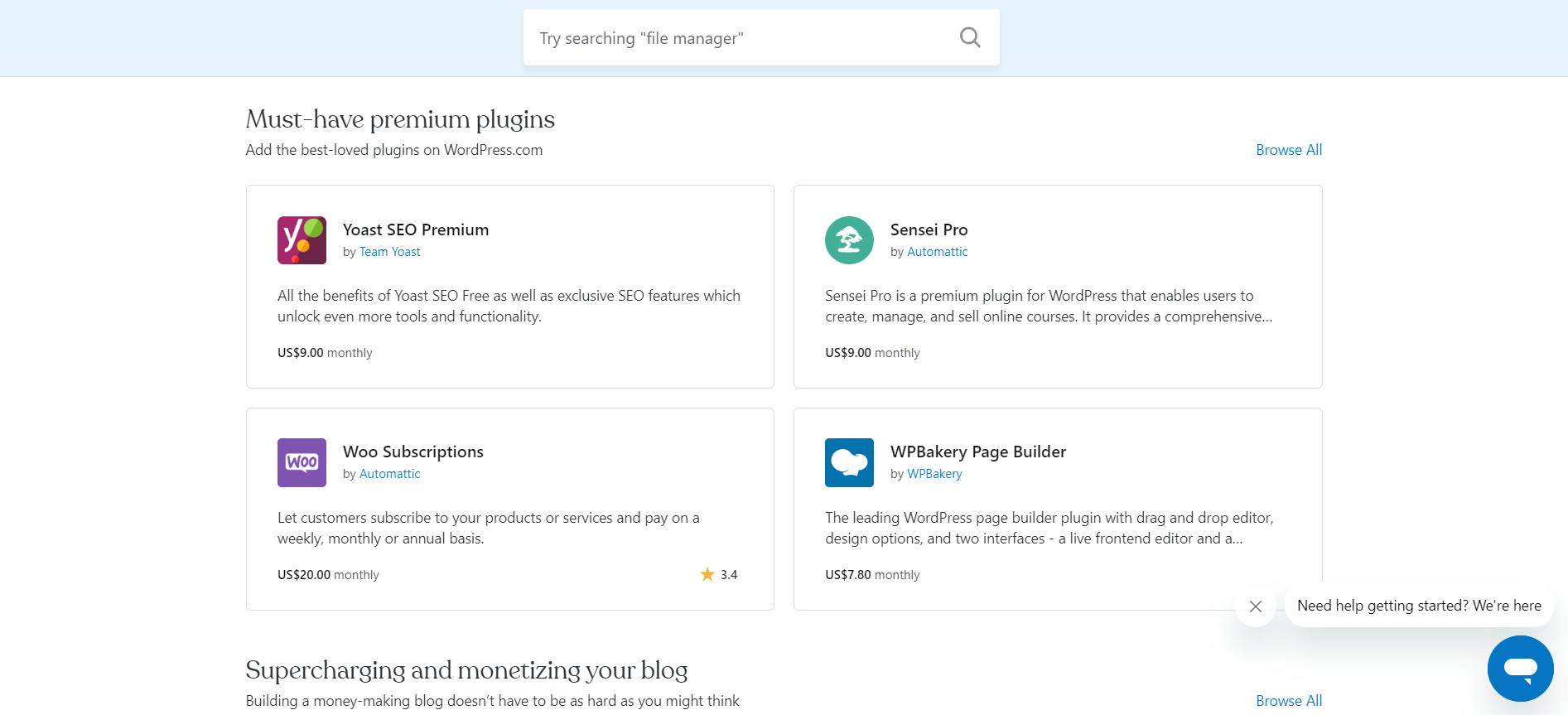
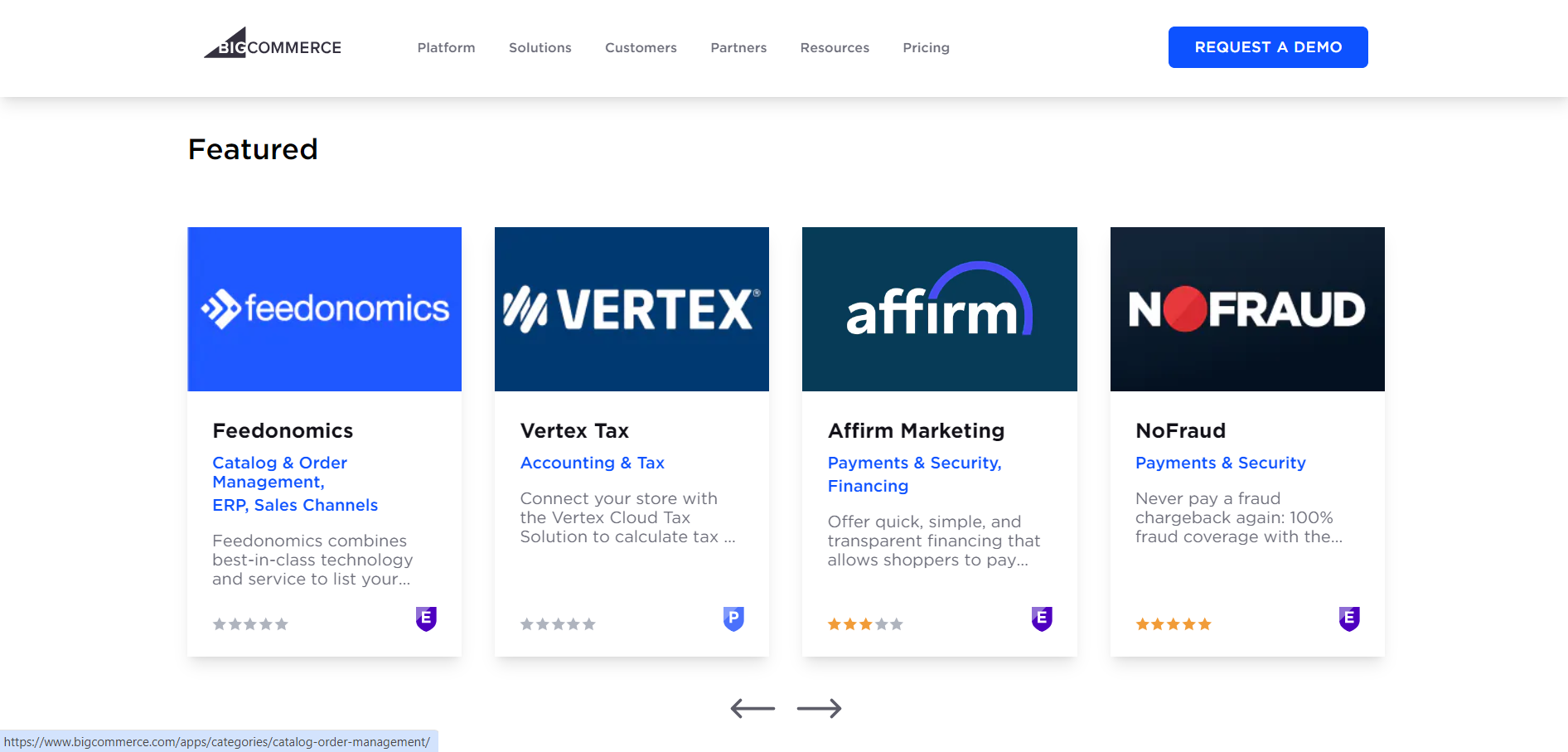
Marketing Features
Design FunctionalitiesRepresents how well each platform allows for creative design and customization of websites.Score Components:
- Template Variety (30%): Range and quality of design templates.
- Customization (30%): Flexibility and options for design alterations.
- User Interface (20%): Ease and intuitiveness of the design process.
- Responsiveness (10%): Adaptability to different devices and screen sizes.
- Innovation (10%): Unique design features and tools.
 8.0
8.0
 7.9
7.9
🏆
Overall Winner: WordPress
. WordPress edges out BigCommerce with a slightly higher marketing features score. Both platforms offer robust marketing tools, but WordPress’s extensive plugin ecosystem provides more flexibility and customization options.

|

|
|
|---|---|---|
|
SEO Tools |
|
|
|
Email Marketing |
|
|
|
Blogging |
|
|
|
Social Media Integration |
Plugins for direct linking, automatic posting, and social feeds display |
Yes |
|
Analytics and Reporting |
In-depth analysis via plugins like Google Analytics for WordPress |
Yes |
|
Ads and Promotions |
Support for Google Ads and ad management through various plugins |
Yes, through third-party integrations |
Customer Support
Customer supportEvaluates the quality and availability of support options.Score Components:
- Response time (40%): Speed of support responses.
- Support quality (30%): Effectiveness and helpfulness of the support.
- Availability (20%): Range of support channels (phone, chat, email).
- Resource richness (10%): Quality of self-help and educational materials.
 5.0
5.0
 8.7
8.7
🏆 Winner: BigCommerce
. In the comparison of WordPress vs BigCommerce, BigCommerce stands out with its robust customer support system. BigCommerce offers 24/7 support through phone, email, and live chat, ensuring users can get help whenever they need it. The platform also provides a comprehensive knowledge base and active community forums, making it easier for users to find solutions and share experiences.
On the other hand, WordPress, being an open-source CMS, does not have direct customer support. Users rely on community forums, the WordPress codex, and support from hosting providers or plugin and theme developers. While this community-driven support can be helpful, it lacks the immediacy and personalized assistance that BigCommerce offers, making BigCommerce the superior choice for customer support.
Security
SecurityLooks at the platforms’ security measures and data protection.Score Components:
- Data protection (40%): Safeguards for user and customer data.
- SSL and encryption (30%): Implementation of secure connections.
- Compliance (20%): Adherence to industry security standards.
- Regular updates (10%): Frequency of security updates and patches.
 6.7
6.7
 8.9
8.9
🏆
Winner: BigCommerce
. BigCommerce takes a comprehensive approach to security, adhering to international regulations like GDPR and CCPA, employing data encryption, and hosting on secure data centers. The platform conducts regular security audits and continuous monitoring to preempt vulnerabilities. BigCommerce also empowers merchants with resources for best practices in security management.
On the other hand, WordPress’s approach to private data storage and protection can vary depending on the hosting provider. However, it does provide numerous functionalities and resources to enhance website security effectively, such as plugins for site backups, monitoring, malware scanning, user activity tracking, permission control, and spam protection tools. Despite these features, WordPress’s security score is lower than BigCommerce’s, indicating that it may not be as secure overall.
AI Capabilities
AI capabilitiesMeasures the effectiveness of AI-driven features and tools.Score Components:
- Automation efficiency (40%): Impact of AI on streamlining processes.
- Personalization (30%): AI-driven customization for users or customers.
- AI-Assisted design (20%): Role of AI in website design and functionality.
- Data analysis (10%): Use of AI in interpreting user data and analytics.
 6.1
6.1
 7.3
7.3

|

|
|
|---|---|---|
|
AI Builder |
AI Site Builder and Zita plugins |
– |
|
AI Ecommerce features |
Conversios, Ochatbot, AI Power, GetGenie plugins |
Personalized product recommendations, AI on-site search, AI powered chatbots |
|
AI Content Generation |
AI Engine, GetGenie plugins |
AI-powered writing tools, ChatGPT AI Content Master |
|
Additional AI features |
Various AI powered plugins |
AI-driven data analytics, Maisie AI chatbot |
🏆 Winner: BigCommerce
. BigCommerce, with a score of 7.3, integrates AI technology to enhance ecommerce operations, offering AI-powered writing features for product descriptions, personalized storefronts through product recommendations, and AI-driven data analytics for deeper business insights. Additionally, the Maisie AI chatbot assists with sales, customer service, and marketing list growth, providing a comprehensive suite of tools aimed at improving efficiency, customer engagement, and sales performance for merchants.
WordPress, with a score of 6.1, lacks built-in AI features but its open-source nature allows for an ecosystem of AI plugins for specific tasks such as AI Engine, GetGenie for content writing, and AI Power: Complete AI Pack for various AI-powered features. While WordPress’s AI capabilities are powerful, they are more plugin-dependent compared to BigCommerce’s integrated AI features.
User Management
User ManagementAssesses the platforms’ capabilities in managing user roles, permissions, and accessibility.Score Components:
- Role Customization (40%): Flexibility in creating and defining user roles and
permissions. - Ease of Management (30%): User interface and tools for managing users.
- Access Control (20%): Effectiveness of access control measures for different user
levels. - Scalability (10%): Ability to manage a growing number of users efficiently.
 8.8
8.8
 8.9
8.9
🏆 Winner: BigCommerce
. Both WordPress and BigCommerce offer a range of user roles with varying levels of access and permissions.
- WordPress provides a range of user roles from Super Admin to Subscriber, with additional controls for further customization.
- BigCommerce allows an unlimited number of staff accounts with various roles and permissions.
WordPress User Roles and Access Levels:
| Role | Description | Access Highlights |
|---|---|---|
| Super Admin | Manages the entire network in WordPress Multisite. | Network admin, manage sites, users, plugins, themes. |
| Administrator | Full access within a single site. | Manage plugins, themes, users, all posts/pages. |
| Editor | Manages and publishes content, including others’ posts. | Edit/publish all posts, manage comments, categories. |
| Author | Publishes and manages their own posts. | Write, edit, publish own posts, upload files. |
| Contributor | Writes and edits their own posts but cannot publish. | Write, edit own posts (no file uploads or publishing). |
BigCommerce User Roles and Access Levels:
| Role | Description | Access Highlights |
|---|---|---|
| Sales Staff | Enables all Sales Staff permissions | Manage, edit, and add orders. Finalize manual orders with manual payments. Manage returns, capture funds, and refund orders. Manage and edit customers. Manage and edit product reviews. Manage legacy coupons and promotions. Use Image Manager. |
| Sales Manager | Enables all Sales Staff and Sales Manager permissions | Includes Sales Staff permissions. Manage, create, edit, and delete products. Manage product options and categories. Export orders. Manage customer store credit and export customers. Manage blogs, brands, and various reports (Ecommerce Analytics reports, abandoned cart reports, etc.). Edit inventory and manage channels. |
| Store Administrator | Enables all Sales Staff, Sales Manager, and System Admin permissions | Includes Sales Staff and Sales Manager permissions. Manage users and form fields. Manage settings (product filtering, store settings, checkout, inventory, order notifications, etc.). Manage payments, shipping, and tax settings. Import catalog entities and customers. Access store design tools and Page Builder. Manage customer groups. Take store down for maintenance. |
| Store Owner | Includes all permissions and is the person financially responsible for the account; this role has exclusive access to various account-related features. | Full access to all permissions and features across the platform. Exclusive access to account-related features and settings not available to other roles. |
| Custom | Use this option to create your own combination of permissions. You can also opt to customize one of the other roles. | Customize permissions based on specific needs. Mix and match permissions from different roles to create a unique role with tailored access. |
Additional Features

|

|
|
|---|---|---|
|
SSL Certificate |
|
|
|
Custom Domain |
|
|
|
Free Custom Domain Included |
|
|
|
International Domains |
|
|
|
Mobile Responsive |
|
|
|
Page Speed |
|
|
|
Website Builder Mobile App |
|
|
|
Convert a Website To An App |
|
|
|
Website Analytics |
|
|
|
Multilingual Sites |
|
|
|
Multiple Users |
|
|
User Feedback
WordPress receives praise for its user-friendliness, cost-effectiveness, extensive themes and plugins, customization options, and supportive community. However, users mention technical challenges, security concerns, a learning curve, and a lack of direct support. Overall, it remains a widely used and versatile platform, especially beneficial for startups and small businesses.
User feedback on BigCommerce highlights a mix of experiences, with positive remarks on its ease of use, SEO configuration, and strong support team. However, significant criticisms include its lack of suitability for businesses with brick-and-mortar locations, due to issues with POS integration and sales tracking, as well as its inflexibility with customization and additional costs for necessary features. Additionally, concerns were raised about the platform’s steep learning curve for beginners, limitations in product variation and design options, and difficulties with order management. Despite these challenges, some users appreciate the platform’s ability to quickly launch and reliably host stores, alongside its potential for scalability and e-commerce growth.
The making of this blog
We followed a clear, step-by-step process to write and research this article.
FAQ
Which platform is better for ecommerce, WordPress or BigCommerce?
Can I use WordPress for non-ecommerce websites?
How do WordPress and BigCommerce compare in terms of ease of use?
Which platform offers better customer support?
How do the platforms compare in terms of security?
Which platform is more customizable, WordPress or BigCommerce?
What are the main differences in pricing between WordPress and BigCommerce?
Which platform is better for SEO?










